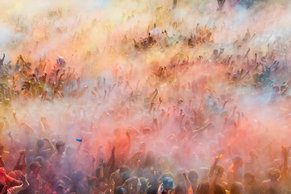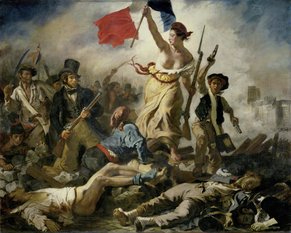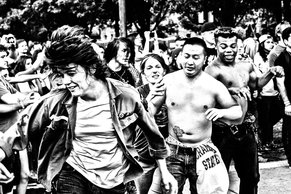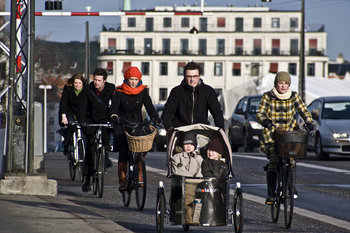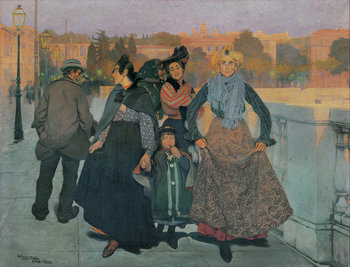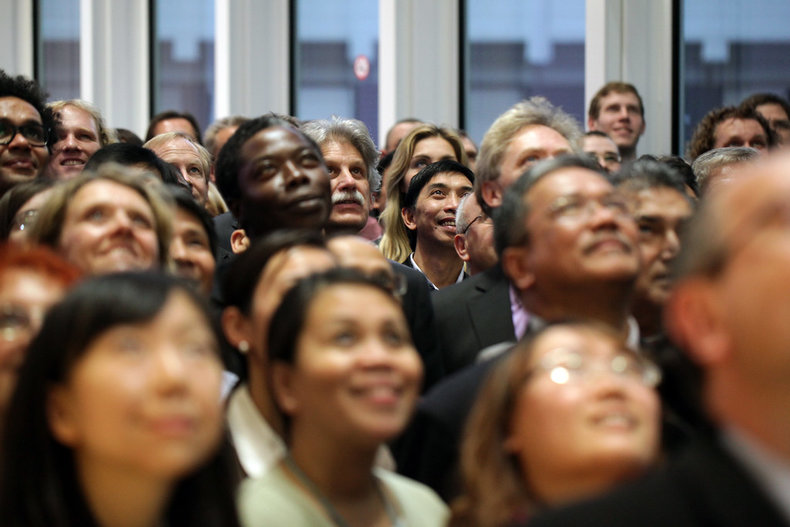
Proletariat
The proletariat are a class that depend on their labor as they have little or no capital. The proletariat are often a majority such that in theory governments should be oriented to the interests of labor. In practice, governments may serve an elite through a system such as crony capitalism whereby corporations have great influence over public policy and spending.Lumpenproletariat
The lumpenproletariat are an underclass described by Marxist theory as having no capital or ability to work. This group is dependent on the state and benefits greatly from social spending. However, Marxist theory largely writes off this group as incapable of class consciousness. This may have been based on biases, elitism or a lack of foresight by 19th century Marxists as the lumpenproletariat has demonstrated significant class consciousness in the past 50 years. As lumpenproletariat is an academic term, this group may identify as the "poor", "underprivileged" or more recently as the "99%", a reference to anyone outside of the 1% richest families.Blue Collar & White Collar
In the 20th century, there was a strong class distinction between blue collar workers who did physical labor and white collar office workers who worked at a desk. This served to divide the proletariat as most white collar workers depend on their labor but viewed themselves as above the interests of the blue collar worker. This distinction is fading as office workers are increasingly faced with poor working conditions and low pay such that many blue collar workers have better jobs.Working Class
The working class is another term for the proletariat. Technically, anyone who depends on their labor is working class but it is common for white collar workers to view themselves as above the working class nonetheless.Middle Class
Middle class is a term for families that generate discretionary income such that they have money left after they pay for the essentials of life such as food, shelter, healthcare, education, transportation and clothing. This allows for saving, capital accumulation, home ownership, leisure and lifestyle upgrades. This completely transforms society such that a large middle class is a defining feature of developed countries. The middle class encompasses both blue collar and white collar workers who earn discretionary income.Petite Bourgeoisie
The petite bourgeoisie deploy their own capital and labor and are therefore somewhat independent from large owners of capital such as corporations. For example, farmers, merchants and small businesses who largely depend on their own labor and capital they control.Bourgeoisie
The bourgeoisie are families that own enough capital to live comfortably and indefinitely without working if they manage their capital well. It is common for the middle class to incorrectly identify as bourgeoisie such that they lack class consciousness or support the interests of the bourgeoisie. This may be based on optimism such as the "American dream" whereby people feel they will soon be more prosperous than their current circumstances.Intelligentsia
Beyond economics, it is common for people to identify based on their education level. At the top level of this is the intelligentsia who are highly educated and work in careers that are knowledge intensive. For example, artists, academics and writers are considered intelligentsia. The political opinions and actions of the intelligentsia are often motivated by ideas as opposed to the economic realities of their life. For example, the intelligentsia may variously champion policies that benefit the lumpenproletariat or bourgeoisie despite not belonging to these groups. That is to say, most intelligentsia are middle class but don't necessarily support middle class political interests.Upper Class
The upper class are old money families who are both unusually wealthy and have significant social status based on cultural capital and membership in prestigious institutions such as ivy league universities. The upper class have a well developed sense of class consciousness and often have significant political power. At the same time, they may make a show of helping the poor and disadvantaged. As the upper class have demonstrated an ability to manage wealth over time, they tend to be aware of the potential for class consciousness to redistribute wealth.Nouveau Riche
The nouveau riche are families that are wealthy but lack the cultural capital to fit in with the upper class. This is a diverse group. As a talented and entrepreneurial group, the nouveau riche may have a strong sense of "survival of the fittest" that is hostile to the interests of the lower classes.Identity Politics
Identity politics is a term for individuals who prioritize politics based on race, gender, language and other aspects of identity over class consciousness. Where socioeconomic classes are divided, their ability to win policies that benefit their life in concrete ways may be diminished.Anomie
Anomie is a failure to identify with anyone else such that an individual views themselves as apart from society. This produces political apathy.Notes
Although class consciousness is associated with Marxist theory it can be applied to more practical political strategies than communism that involves destroying markets in favor of centralized decision making in the hands of a bureaucratic elite. Generally speaking, 19th century Marxist theory has been largely discredited including the failure to thrive of large societies based on communism.| Overview: Class Consciousness | ||
Type | ||
Definition | The degree to which people identify with others in the same socioeconomic situation as themselves and take action to secure common interests. | |
Related Concepts | ||


